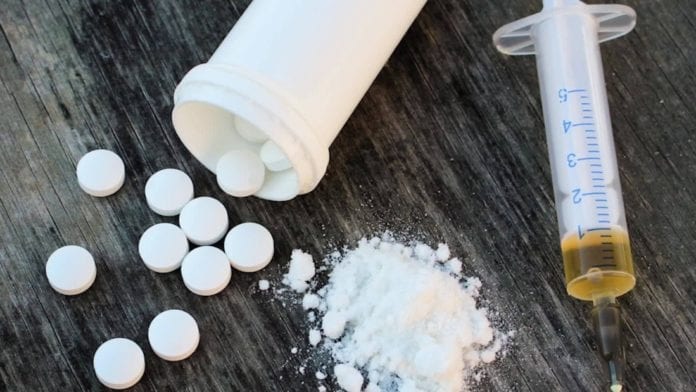BC is now taking a harm reduction approach to end substance-use stigma by decriminalizing small amounts of illicit drugs.
On Monday morning, the province announced that as of Tuesday, January 31st small amounts of some illicit drugs will be decriminalized.
Jennifer Whiteside, BC’s Minister of Mental Health and Addictions made the joint announcement along with Carolyn Bennett, federal Minister of Mental Health and Addictions and Associate Minister of Health.
The three year pilot project is meant to end shame and stigma that could help save the lives of substance users.
“We know criminalization drives people to use alone. Given the increasingly toxic drug supply, using alone can be fatal,” said Whiteside.
“Decriminalizing people who use drugs breaks down the fear and shame associated with substance use and ensures they feel safer reaching out for life-saving supports.”
“This is a vital step to get more people connected to the services and supports as the province continues to add them at an unprecedented rate.”
The province had to go through Health Canada in order to get an exemption under the the Controlled Drugs and Substances Act to not criminalize those who use drugs.
Specifically, as of January 31st, adults who are over 18-years-old will not be subject to criminal charges for possessing small amounts of certain drugs meant for personal use.
The drugs permitted include opioids, cocaine, methamphetamine and MDMA.
BC stipulates that this does not mean these drugs are now legal — it just means adults who are found to have less than 2.5 grams of these substances will not be arrested, charged or have their drugs seized.
The province says that instead of being arrested and having their drugs confiscated, police will offer health and social supports as well as information about treatment and recovery options.
The approach the province is taking is one of harm-reduction which does more to empower an individual addicted to drugs to seek recovery and not be caught in a vicious cycle of criminality.
Minister Whiteside hopes this will decrease opioid addiction and drug poisoning which has been killing record numbers of British Columbians.
“Every day, we are losing lives to overdoses from the increasingly toxic illegal drug supply. We are committed to stopping this tragic epidemic with bold action and significant policy change,” said Bennett.
“By supporting British Columbia in this exemption to the Controlled Drugs and Substances Act, our government is providing the Province with the ability to help divert people away from the criminal justice system and toward the health and social services they need.”
“We look forward to continuous collaboration with the Province to measure the public-health and public-safety outcomes, help save lives and bring an end to this crisis.”
The province says that they have been working with police leaders in order to develop training resources and guidance for officers to utilize when de-escalating a situation.
The decriminalization only applies to adults though, it does not apply to youth. K-12 schools remain drug-free zones and decriminalization does not apply to youth 17-years-old and younger.
BC says that on top of this most recent move toward a harm-reduction approach, safer supply, supervised consumption sites, drug testing sites and naloxone training remain as priorities to reduce stigma, shame and drug poisonings.



